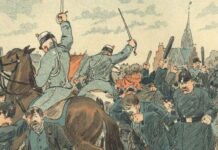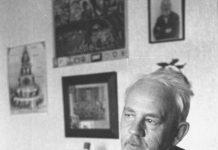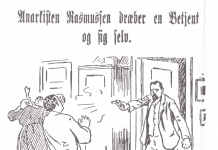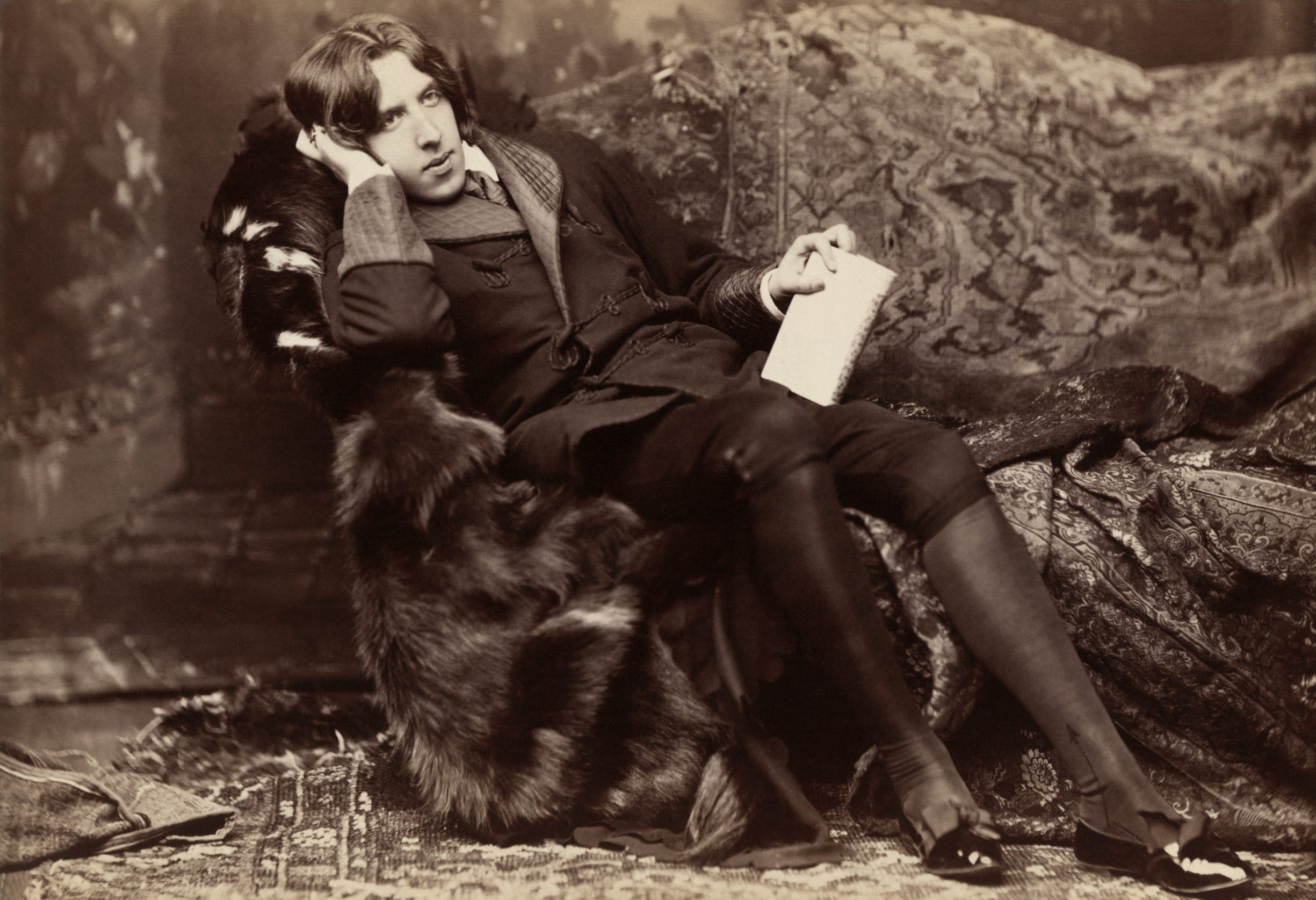
Socialistisk Biblioteks Tidslinje med links til begivenheder og personer i 1854.
Se også Index over personer, organisationer/partier og værker (som bøger, malerier, mm.), steder, begivenheder, mv., der er omtalt på hele Tidslinjen, titler og indhold på emnelisterne osv.
[sta_anchor id=”18540510″ /]
10. maj 1854
Tyendeloven gav tyende retsstilling, men fastslår at tyende står til rådighed for husbonden i døgnets 24 timer og kan straffes for ulydighed.
Links:
- Tyende (Wikipedia.dk)
- Tjenestefolk (Denstoredanske.dk)
- Tyendeloven af 10. maj 1854 (Danmarkshistorien.dk/Kilder)
- Afløses af Medhjælperloven af 6. maj 1921 (se denne)
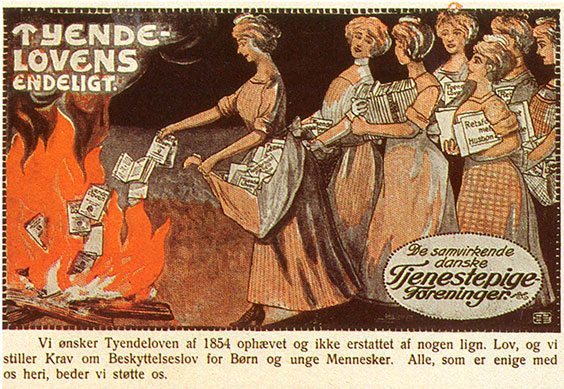
[sta_anchor id=”18540902″ /]
2. september 1854
Anarkisten Hans Jæger fødes i Drammen, Norge (dør 8.2.1910 i Oslo)
Se:
- Jæger, Hans Henrik (Leksikon.org).
- Hans Jæger (Wikipedia.no)
- Jæger, Hans (Foreningen Sorte Fane). Oversigt over tekster på dansk og enkelte norske + links. Bl.a. Hans Jægers Anarkiets Bibel (Gyldendal, 1906, 485 sider). Kapiteloversigt og tekster på Wikisource. Se hele teksten som pdf-udgave (Nasjonalbiblioteket).
- Hans Jæger, 1854-1910 (Anarchist Encyclopedia)
- Jens Bjørneboe: Hans Jæger (Excerpts)
Litteratur:
Hans Jæger. Af J.J. Ipsen (Kbh., Woels Forlag, [1926], 82 sider).
Se også på Socialistisk Bibliotek:
- Arbejderhistorisk bladliste, 1907 (scroll ned), under Revolten.
- Tidslinjen: 11. december 1885, om Hans Jægers bog: Fra Kristiania-Bohemen.
- Linkbox: Anarkisme vs. Marxisme
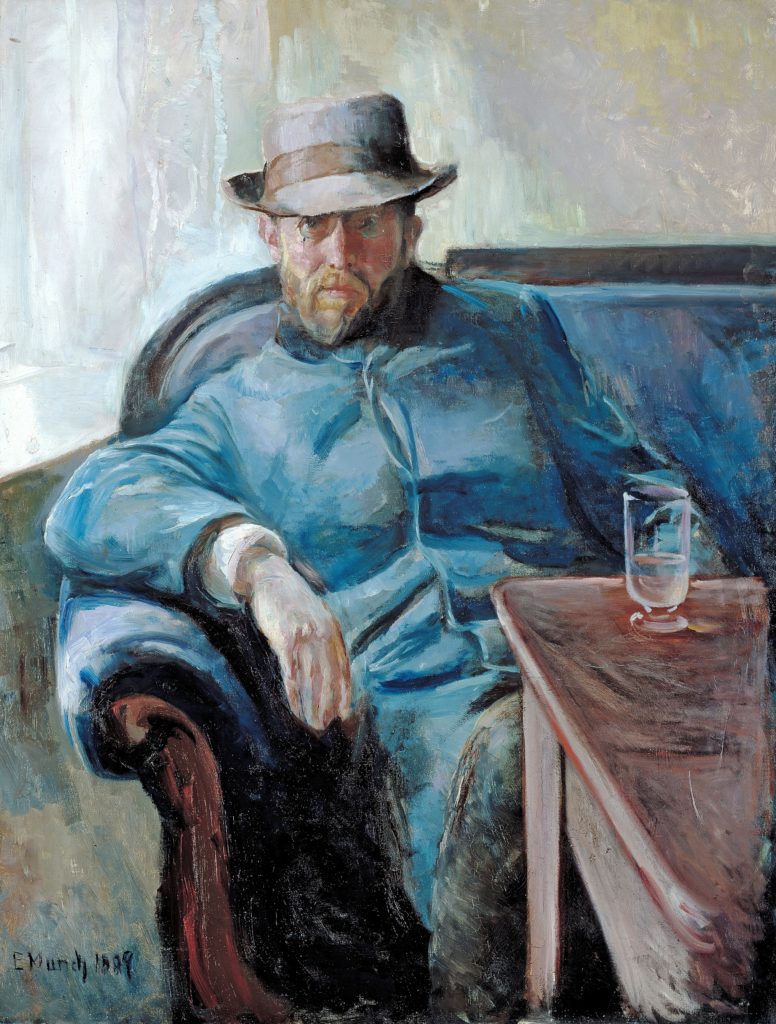
[sta_anchor id=”18541016″ /]
16. oktober 1854
Den ledende teoretiker i II. Internationale og socialdemokratierne før 1. Verdenskrig, Karl Kautsky fødes i Prag (dør 17. oktober 1938 i eksil i Amsterdam, Holland)
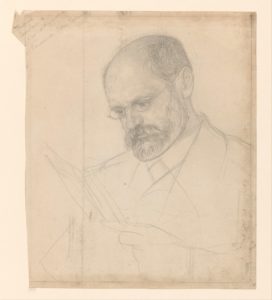
Leksikalt mv.:
- Karl Kautsky. Af Jon Elster (Leksikon.org)
- Karl Kautsky (Wikipedia.org)
- Kautsky Internet Archive (Marxists Internet Archive; Marxist Writers). Biography and Works. Incl.: Autobiography (1902).
- Karl Kautsky (Marxistarkiv.se). Texter av och om Karl Kautsky.
- Karl Kautsky (Marxisme online). Med bøgerne Dagen efter den sociale Revolution (1902) + Kommunisme og terrorisme (1919) online.
- Lenin och Kautsky: en bibliograf (pdf). Av Martin Fahlgren (Marxistarkiv.se, 29.12.2013)
Artikler:
Karl Kautsky: “Renegat” og “krypto-revisionist – eller marxist? (pdf). Af Uffe Jacobsen (Arbejderhistorie, nr. 25, 1985, s. 3-29). “En oversigt samt nogle kommentarer til litteratur, der behandler Kautskys politisk-teoretiske udvikling”. Scroll ned.
Kautsky och Lenin (pdf). Av Lars T Lih (Marxistarkiv.se). Uddrag fra Lihs bok, Lenin Rediscovered (Haymarket Books, 2008, p.74-101). “Lih menar att Lenin var inspirerad av det tyska socialdemokratiska partiet och dess i Erfurt-program, liksom Karl Kautskys kommentarer till detsamma.”
Kautsky mot Lenin (pdf). Av Christer Lund (Zenit, nr.67, 1980; online på Marxistarkiv.se). “Debatten mellan Lenin och Kautsky markerade det vägskäl där reformismens och den revolutionära marxismens vägar skildes åt. Nu när vänstern börjat söka efter en ‘tredje väg’ är det kanske inte så underligt att man letar sig tillbaka till detta vägskäl …”
Karl Kautsky: The Class Struggle (Erfurt Program) (1892) (online at Marxists Internet Archive). Om Erfurtprogrammet, se artikel på DenStoreDanske.dk.
Karl Kautsky, Vägen till makt och den tyska socialdemokratin 1909: Bakgrund och polemik (pdf). Av Georg Fuelberth (Arkiv, nr.17, 1979; online på Marxistarkiv.se). Med link til bøger online på svensk: Den sociala revolutionen (1902/1906) + Vägen till makt (1909/1914).
Den proletariske revolution og renegaten Kautsky (1918). I Lenin: Udvalgte værker. Bind 11 (Tiden, 1983, s.113-206; online på Marxisme.dk). “… en artikel af Kautsky, hvor han kaldte de socialdemokratiske partier til kamp mod bolsjevikkerne. Efter at have læst sammendrag af denne artikel … skrev Lenin: »Kautskys skandaløse sludder, barnagtige plapren og yderst platte opportunisme rejser spørgsmålet, hvorfor vi intet foretager os til bekæmpelse af den teoretiske forfladigelse af marxismen fra Kautskys side?« [red. bemærkning på Marxisme.dk]
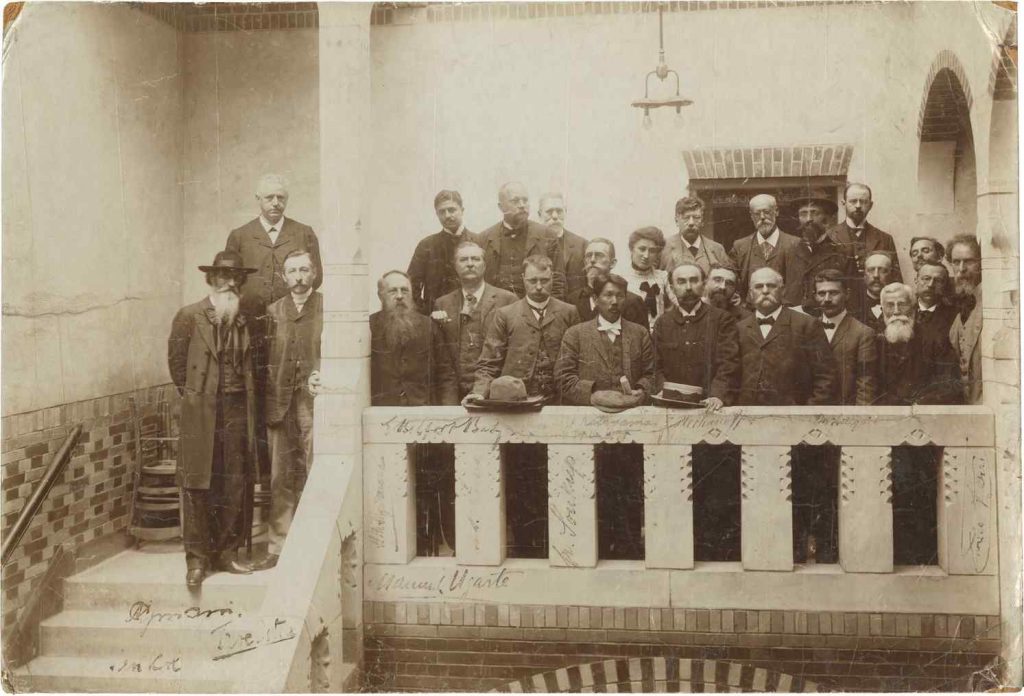
In English:
Lenin-Kautsky Post-1914 Database (Marxist Essays and Commentary, August 5, 2019). “What follows is the first online publication of a research tool created by Lars Lih in February 2008 and updated February 2011.”
“Kautsky as Marxist” – Data base (pdf) (Historicalmaterialism.org, February 2011, 32 p.; online at Internet Archive). A collection of comments by Lenin compiled by Lars Lih.
The New Reformism and the Revival of Karl Kautsky: The Renegade’s Revenge. By Suryashekhar Biswas (Marx & Philosophy Review of Books, 5 August 2024). Review of Douglas Greene’s book (Routledge, 2024, 244 p.). “Douglas Greene’s well-timed book comes in the context of a long-drawn debate on the legacy of Karl Kautsky (1854-1938) and his politics among scholars, activists and historians largely in the imperial centres of the USA and the UK.”
See also interview with Dough Greene: Why Kautsky was wrong (and why you should care) (Left Voice, May 30, 2024) + review by Luca Tavan: Zombie Kautskyism (Marxist Left Review, Issue 28, March 2025)..
Karl Kautsky on Democracy and Republicanism. By Andreas Chari (RS21, 28 October 2023). Review of Ben Lewis’ book (ed.) (Karl Kautsky is best-known as a turncoat to the 19th century communist cause, but a new collection of documents sheds light on Kautsky’s ideas before he went astray. In this review Andreas Chariargues for a reappraisal of the value of Kautsky’s thinking.”
Karl Kautsky wrote some classic works of Marxist history. By Paul Blackledge (Jacobin, March 3, 2023). “The German Marxist thinker Karl Kautsky uncovered the radical history of Christianity, from the early years of the Church to the Reformation and the German Peasant War. His pioneering work in Marxist historiography deserves to be remembered today.”
Karl Kautsky was once a revolutionary (Jacobin, October 16, 2020). “Ben Lewis spoke to Jacobin’s David Broder about Kautsky’s understanding of socialist revolution, the specific emphasis he placed on democratic-republican demands, and the importance of combating commonplace misrepresentations of his ideas today.”
What can we learn from Kautsky today? By Tony Phillips (International Socialism, Issue 167, Summer 2020). “Last year a series of articles appeared in the left-wing US publication Jacobin that defended Kautsky’s pre-First World War writings and argued that there is much of value to socialists today in this work … In this article I will reject these views and argue that Kautsky’s version of Marxism was always flawed.”
Democracy and republic. By Mike Macnair (Weekly Worker, Issue 1286, 13 February 2020). Review of Ben Lewis (ed.), Karl Kautsky on democracy and republicanism (Brill/Haymarket, 2020, 352 p.). “This book aims to rekindle interest in Kautsky’s ideas by exploring his democratic-republican understanding of state and society.” See also Ben Lewis’ introduction: Dispelling the Kautsky myths (Weekly Worker, Issue 1289, 6 March 2020) + review by Andreas Chari (RS21, 28 October 2023).
The return of Karl Kautsky? By Lance Selfa (Internationalsocialism.net, January 13, 2020). “For those on the revolutionary left, Karl Kautsky seemed like little more than an historical figure. Someone whom your Marxist education would expose you to, but someone you’d never think would become a reference point for contemporary politics. Times have changed, especially with the political and academic interventions of Lars Lih and Eric Blanc.”
Lenin’s verdict on Kautsky in State and Revolution: It’s time for a closer look. By Lars T. Lih (Marxist Essays and Commentaries, August 5, 2019). “One of the most instructive illustrations of Lenin’s conflicted attitude toward his former mentor is the section in State and Revolution devoted to Kautsky-when-he-was-a-Marxist.”
An introduction to the Kautsky debate. By Nathaniel Flakin (Left Voice, July 23, 2019). “All of a sudden, socialists in the U.S. have started talking about Karl Kautsky. Why? We provide an overview of the debate for comrades who haven’t been following it.”
Karl Kautsky as architect of the October Revolution. By Lars T. Lih (Jacobin, 29 June 2019). “Lenin remained true to the tactical guidelines of Karl Kautsky after the latter had abandoned them.”
Steady rightward trajectory (Weekly Worker, Issue 1249, 2 May 2019). “Responding to a flurry of debate, US comrade Jim Creegan gives his view on the evolution of Karl Kautsky in the first of a two-part article” + Commitment to orderly progress (Ibid., Issue 1250, 9 May 2019). “… while Karl Kautsky’s writings contained insights, his entire political career can only serve as a negative example.”
Why Kautsky was right (and why you should care). By Eric Blanc (Jacobin, April 2, 2019). “Karl Kautsky’s vision for winning democratic socialism is more radical, and more relevant, than most leftists care to admit.” See debate:
Kautsky, Lenin, and the transition to socialism: A reply to Eric Blanc. By Mike Taber (Marxist Essays and Commentary, April 6, 2019).
The democratic road to socialism: A reply to Mike Taber. By Eric Blanc (Marxist Essays and Commentary, April 11, 2019).
Revolutionary strategy and the electoral road: A rejoinder to Eric Blanc. By Mike Taber (April 13, 2019).
The “best” of Karl Kautsky isn’t good enough (Jacobin, March 9, 2019). “Charlie Posts cautions against recent defenses of Second-International Marxist Karl Kautsky.”
USA: two trends in the American socialist movement – why we should throw Kautsky out with the bathwater. By John Peterson (In Defence of Marxism, 8 February 2019). “As part of its efforts to promote these ideas, Jacobin has increasingly sought to rehabilitate the ideas and legacy of Karl Kautsky …”
Reclaiming the best of Karl Kautsky. By James Muldoon (Jacobin, 5 January 2019). “Denounced and then lost to history, the radical Karl Kautsky’s thought still offers a compelling vision of how to democratize all aspects of our lives.”
The tasks of our times: Kautsky’s Road to Power in Germany and Russia (pdf). By Lars T. Lih (Studies in East European Thought, Vol.70, No.2-3, September 2018, p.121–140). “In Germany, it earned Kautsky hostility from the trade-unionists on the right of the party and the radicals on the left. Later writers dismiss the book as preaching ‘revolutionary passivity’. In Russia, the Bolsheviks imme-diately seized on the book as an endorsement of specifically Bolshevik positions.”
Karl Kautsky: From pope to renegade. By Doug Enaa Greene (Links: International Journal of Socialist Renewal, October 25, 2018). “In the last few years, there has been a revival of interest in Kautsky’s politics in both academia and on the political left.”
Kautsky: the abyss beyond parliament (Marxist Left Review, No.14, Winter 2017). “Darren Roso contributes to debates about what kind of parties the revolutionary left needs and the role of Karl Kautsky, the leading theorist of the Second International before World War I.”
The enigma of Kautsky. By Marc Mulholland (Weekly Worker, Issue 1129, 3 November 2016). “[Karl Kautsky was] an original thinker, and in his life work he developed the system he had inherited.”
The roots of 1917: Kautsky, the state, and revolution in Imperial Russia. By Eric Blanc (Marxist Essays and Commentary, October 13, 2016). Also online in Weekly Worker (Issue 1128, October 27, 2016). På svensk: Rötterna till 1917 (pdf) (Marxistarkiv.se, 1. februar 2018). “This article reexamines the perspectives on the state and revolution advocated by the early Karl Kautsky and revolutionary social democrats across the Tsarist Empire.”
Party, class and Marxism: Did Kautsky advocate ‘Leninism’? By Eric Blair (Marxist Essays and Commentaries, May 24, 2016). “The article deserves a wide audience, as it clarifies the strategy of the early revolutionary Kautsky and because it insightfully challenges problematic political orientations that have become hegemonic among socialists today.”
A perfectly ordinary, highly instructive document (Weekly Worker, Issue 1087, 17 December 2015). “Lars T Lih introduces Zinoviev’s review of Kautsky’s 1909 book, Path to Power” + Grigorii Zinoviev’s review: Only one path to socialism (ibid.).
Lenin, Kautsky and the ‘new era of revolutions’. By Lars T Lih (Weekly Worker, Issue 895, December 22, 2011). “Lenin’s vision of world revolution at the turn of the 20th century was inspired by Karl Kautsky.”
Kautsky: From Erfurt to Charlottenburg (Weekly Worker, Issue 889, November 10, 2011). “Ben Lewis introduces Karl Kautsky’s ‘Guidelines for a socialist action programme’ + ‘Guidelines for a socialist action programme’ by Karl Kautsky (ibid.)
The book that didn’t bark (Weekly Worker, Issue 863, April 28, 2011). “Lars T Lih introduces excerpts from Karl Kautsky’s ‘Republic and social democracy in France'” + Karl Kautsky: Republic and social democracy in France, Part 1 (ibid.) + Part 2: Second Republic and the socialists (Issue 866, May 19, 2011) + Introduction: Same hymn sheet by Ben Lewis (ibid.) + Part 3: The Second Empire and the Paris Commune (Issue 867, May 26, 2011)
Supplement: Kautsky, Lenin and the ‘April theses’. By Lars T Lih (Weekly Worker, Issue 800, January 14, 2010) + Karl Kautsky: Prospects of the Russian Revolution (ibid.). “… introduced by Lars T Lih, who has been at the forefront of re-examining the complex relationship between these two widely misunderstood figures of the 20th century workers’ movement.”
VI Lenin and the influence of Kautsky. By Lars T Lih (Weekly Worker, Issue 783, September 3, 2009) + Lenin, Kautsky, and 1914 (Issue 784, September 10, 2009). “Lars T Lih discussed the relationship between two great Marxists.”
Lenin and Kautsky: The final chapter. By Lars T. Lih (Communist Students, January 22, 2009; online at Internet Archive). “Lenin felt that Kautsky had changed, not himself. He saw no reason to abandon the outlook he had shared with Kautsky just at the time when, in his eyes, events had justified it completely.”
Karl Kautsky and Marxist historiography. By Paul Blackledge (Science & Society, Vol.70, No.3, July 2006, p.337-359). “While the power of Kautsky’s Marxism became muted after this period, the weaknesses of his later works should not be allowed to obscure the insights contained within his earlier work; insights that informed some of the best work of the next generation of Marxists.” Only abstract online.
Kautsky, Marxism and Leninism. By Paul Flewers (Revolutionary History, Vol.6, No.1, Winter 1995-96). Review of John Kautsky, Karl Kautsky: Marxism, Revolution and Democracy (Transaction Publishers, 1994).
The Theory of Permanent Revolution breaks the hold of Kautskyian Marxism. In Tony Cliff: Trotsky: Towards October: 1879-1917 (Bookmarks, 1989, p.138-39; online at Marxists Internet Archive).
The pope of Marxism. By Dave Stocking (Permanent Revolution, No.6, 1987). Review of Dick Geary, Karl Kautsky (Manchester University Press, 1987). “Dick Geary’s book belongs, at bottom to the school of those who see no fundamental contradictions in Kautsky’s development.”
Kautskyism. Part 2:1 in: What is the real Marxist tradition? By John Molyneux (International Socialism, Issue 20, Summer 1983). “The SPD officially committed itself to Marxism at its congress at Erfurt in 1891 when it adopted the Erfurt Programme drafted by the ‘Pope of Marxism’, Karl Kautsky.”
Karl Kautsky. By Leon Trotsky (New International, Vol.5, No.2, February 1939; online at Marxists Internet Archive). “We remember Kautsky as our former teacher to whom we once owed a good deal, but who separated himself from the proletarian revolution and from whom, consequently, we had to separate ourselves.”
See also:
Terrorism and Communism: A Reply to Karl Kautsky (1920). By Leon Trotsky (online at Marxists Internet Archive). “… Bolshevik defense of the extraordinary means the young workers’ republic had to take in order to defend itself.”
See also:
Luise Kautsky: The ‘forgotten soul’ of the Socialist movement. By James Muldoon (Historical Materialism, Vol.28, No.3, September 2020, p.113-137). “This article draws on archival research to recover the legacy of Luise Kautsky – journalist, editor, translator, politician and wife of Karl Kautsky – who has been overlooked as a leading member of the socialist movement.”
Widening frame of debate (Weekly Worker, Issue 1263, 8 August 2019). “Mike Macnair begins an examination of the ‘Kautsky debate’ that is taking place on the US left.” See also part 2: Fabian or anarchist? (Issue 1264, 16 August 2919).
Litteratur:
‘Karl Kautsky: Ortodoks marxisme: teori og praksis’. Af Knud Knudsen. I: Socialdemokratiske tænkere. Red. Anders Dybdahl (Informations Forlag, 2014, s.66-82 + 314-15)
[sta_anchor id=”18541016a” /]
16. oktober 1854
Den engelske digter Oscar Wilde fødes som Oscar Fingal O’Flahertie Wills Wilde i Dublin, (dør 30. november 1900 i Paris).
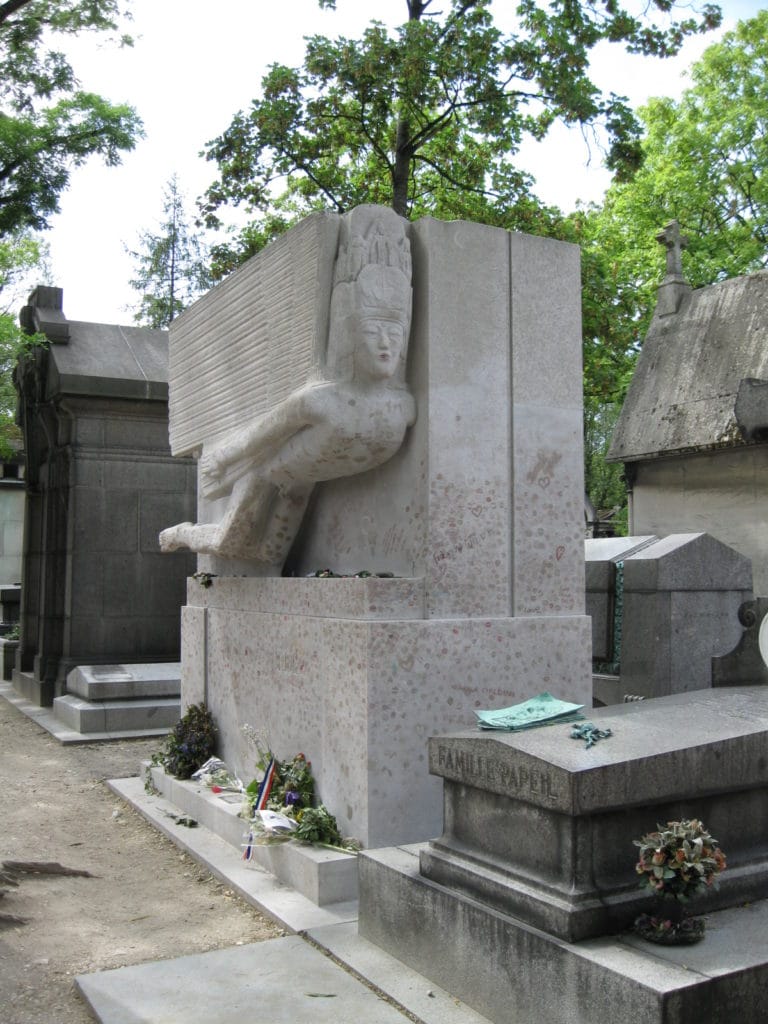
Se:
- Oscar Wilde (Denstoredanske.dk)
- Wilde, Oscar (Sorte Fane Blog). Tekster på dansk + links.
- Oscar Wilde (Marxists Internet Archive; Reference Writers). Incl. The Soul of Man under Socialism (1881)
- Oscar Wilde (Wikipedia.org)
Den Wilde socialist. Af Martin B. Johansen (Socialistisk Revy, nr.3, april 1998). “Filmen Wilde om den engelske forfatter Oscar Wilde er bestemt en must-see film, alene fordi den er bevægende uden at være sentimental, og fordi den er solidt instrueret og præget af rigtigt gode skuespillere.”
Oscar Wilde wasn’t just a satirist. He was a socialist. By Juliet Jacques (Jacobin, April 3, 2021). Review of Oscar Wilde, In Praise of Disobedience: The Soul of Man Under Socialism and Other Writings (Verso, 2020, 336 p.). “Much more than just the wit and satirist of his posthumous reputation, Oscar Wilde was a radical thinker who posed a fundamental challenge to the conservative mores of late Victorian England.”
The Socialism of Oscar Wilde. By Donal Fallon (Jacobin, February 22, 2021). “Oscar Wilde is known today for his satirical wit and literary accomplishments. But he was also a socialist committed to the fight against oppression and exploitation.”
The revolutionary ideas of Oscar Wilde. By James Granell (Irish Marxist Review, Vol.4, No.12, 2015)
The soul of Wilde under anti-humanism. By Richard Seymour (New Left Project, 31 January 2014)
Oscar Wilde, Edward Carpenter and the Socialist eros. By Christopher Brooke and Josephine Quinn (New Left Project, 27 January 2014)
A late Victorian utopia – Wilde’s Socialism in context. By James Thompson (New Left Project, 23 January 2014)
The soul of Man under … Anarchism? By Kristian Williams (New Politics, Vol.13, No.2, Whole No.50, Winter 2011)
The socialism of Oscar Wilde. By Kenny McEwan (Frontline, Vol.1, No.15, 2005; online at Internet Archive)
The Oscar Wilde they never quote. By Stuart Munckton (Green Left Weekly, Issue 501, July 24, 2002)
Walk on the Wilde side. By Gareth Jenkins (Socialist Review, No.213, November 1997)
Oscar Wilde’s lasting significance. By David Walsh (World Socialist Web Site, 28 July 1997)
A man of some importance. By Colin Wilson (Socialist Review, No.186, May 1995, p.22-23). “… [he] was imprisoned 100 years … pilloried for his sexuality and lifestyle.”
Oscar Wilde: Rediscovered Radical. By Peter Drucker (Against the Current, Issue 34, March-April 1991). Review of Richard Ellman, Oscar Wilde (Vintage, 1988) + Oscar Wilde, The Soul of Man Under Socialism (original edition 1891; many later editions).
Three Trials of Oscar Wilde (1895) (Famous Trails. By Douglas O. Linder)
Litteratur:
The Soul of Man Under Socialism. By Oscar Wilde (Verso, Blog, 27 November 2018). An excerpt from Oscar Wilde’s book: “Socialism won’t just improve the material conditions of society. It will also better the souls and creative impulses of everyone in it.”
Kapitalismen, socialismen og mennesket. Af Oscar Wilde (H. Hagerup, 1952, 80 sider). Ny udgave: Menneskets sjæl under socialismen. Oversat (efter første bogudgave, 1904) og med efterord (side 67-77) af Sune de Souza Schmidt-Madsen. (Informations Forlag, 2009, 77 sider) (Google Books m. enkelte tekstsider).
Se for online-udgave:
Kapitalismen, socialismen & mennesket
The Soul of Man under Socialism (1891)
Se også på Socialistisk Bibliotek:
Linkbox: Anarkisme vs. Marxisme
[sta_anchor id=”18541118″ /]
18. november 1854
Den danske socialist Nicolaj L. Petersen fødes. Er sammen med Gerson Trier venstreopposition i Socialdemokratiet før århundreskiftet, ekskluderet og blandt stiftere af Det Revolutionære Socialistiske Arbejderparti 1890.
Se:
- Petersen, Nicolaj L. (Leksikon.org)
- Nicolaj L. Petersen (Dansk Biografisk Leksikon)
- Den materialistiske historieopfattelse. Af Nicolaj L. Petersen (De Socialdemokratiske Diskussionsklubber, 1907, 30 s.; online på Marxisme Online)
Gerson Trier, Nicolai L. Petersen og oppositionen til Socialdemokratiet (pdf). Af Søren Federspiel (Arbejderhistorie, nr.2, 2019, s.156-158). Scroll ned. Anmeldelse af Hans-Norbert Lahme: Die Revolutionären: Gerson Trier, Nicolaj L. Petersen und die Revolutionäre Sozialistische Arbeiterpartei Dänemarks (RSAP): Beschreibung und Ausblick, Exkurse, Briefe (1889-1918) (Hansnorbertlahme.eu, 2017, 308 s.).
Arbejderne og den socialistiske videnskab. Af Nicolaj L. Petersen (Socialisten, nr.12, juni 1913, s.81-83; online på Marxisme Online). Artiklen er også trykt i Uffe Østergaard (red.): Den materialistiske historieopfattelse i Danmark før 1945 (Modtryk, 1973, s.202-203)
Pariserkommunen: Dens Aarsag og Følger. Af Nic. L. Petersen (Eget Forlag, 1891, 31 sider; online på Marxisme Online). Pjecen er genoptrykt i Uffe Østergaard (red.): Den materialistiske historieopfattelse i Danmark før 1945 (Modtryk, 1973, side 141-171)
Se også:
Det Revolutionære Socialistiske Arbejderparti (Leksikon.org)
Se også på Socialistisk Bibliotek:
- Arbejderhistorisk Bladliste 1881-1890, 1889; Arbejderen: Socialistisk Ugeblad
- Tidslinjen: 23. april 1851, om Gerson Trier.
- Tidslinjen: 20. november 1889, om eksklusionen i Socialdemokratiet.
- Tidslinjen: 4. april 1918, om Danmarks socialdemokratiske Arbejderparti.
[sta_anchor id=”18541203″ /]
3. december 1854
The Eureka Stockade Miners Rebellion i Ballarat, Victoria, Australia afsluttes af militærets erobring. Opstandens begyndelse regnes for 17. oktober 1854.
Se:
- Eureka Stockade (Wikipedia.org)
- Reclaiming the Radical Spirit of the Eureka Rebellion in 1854 (Radical Tradition)
















